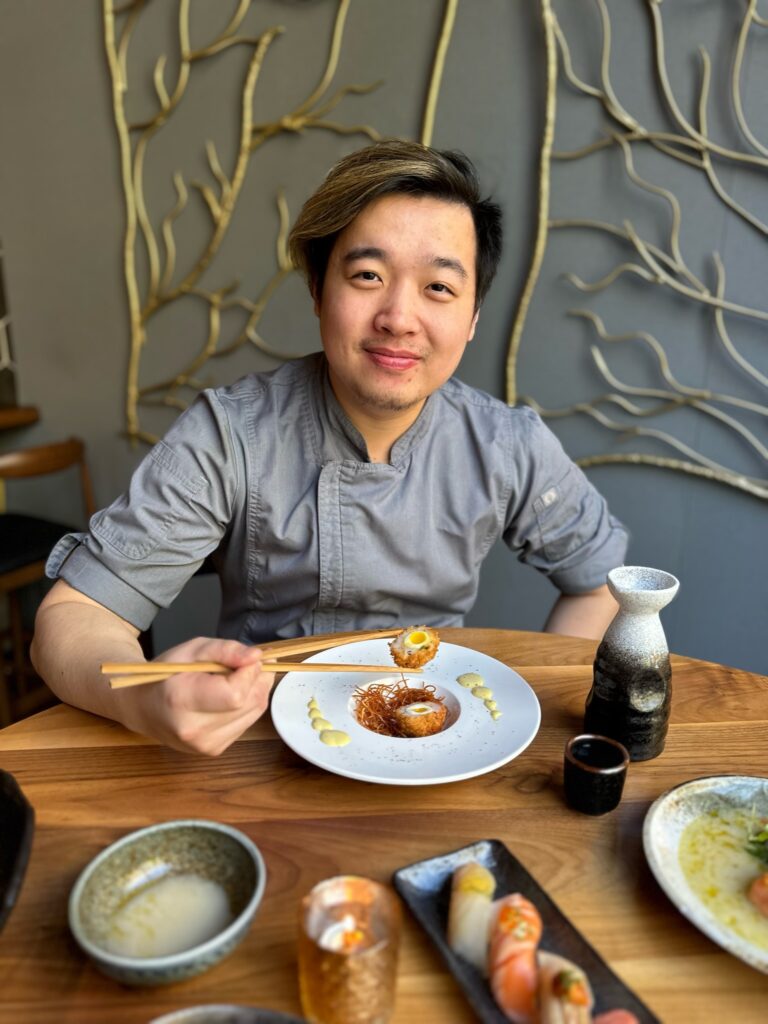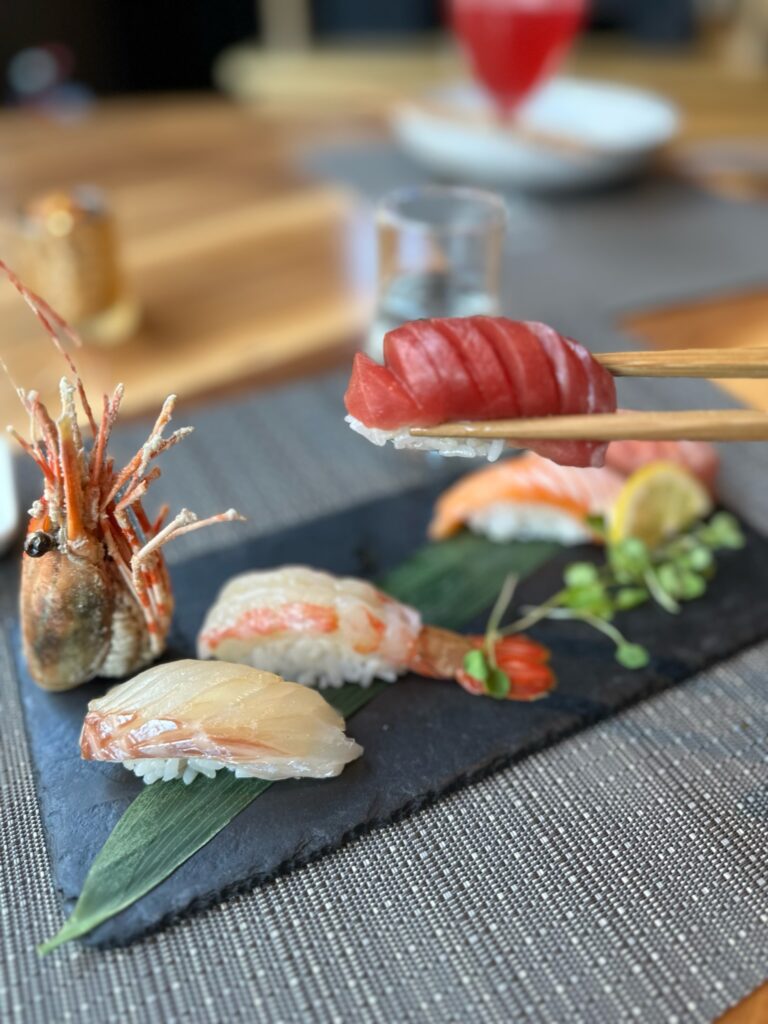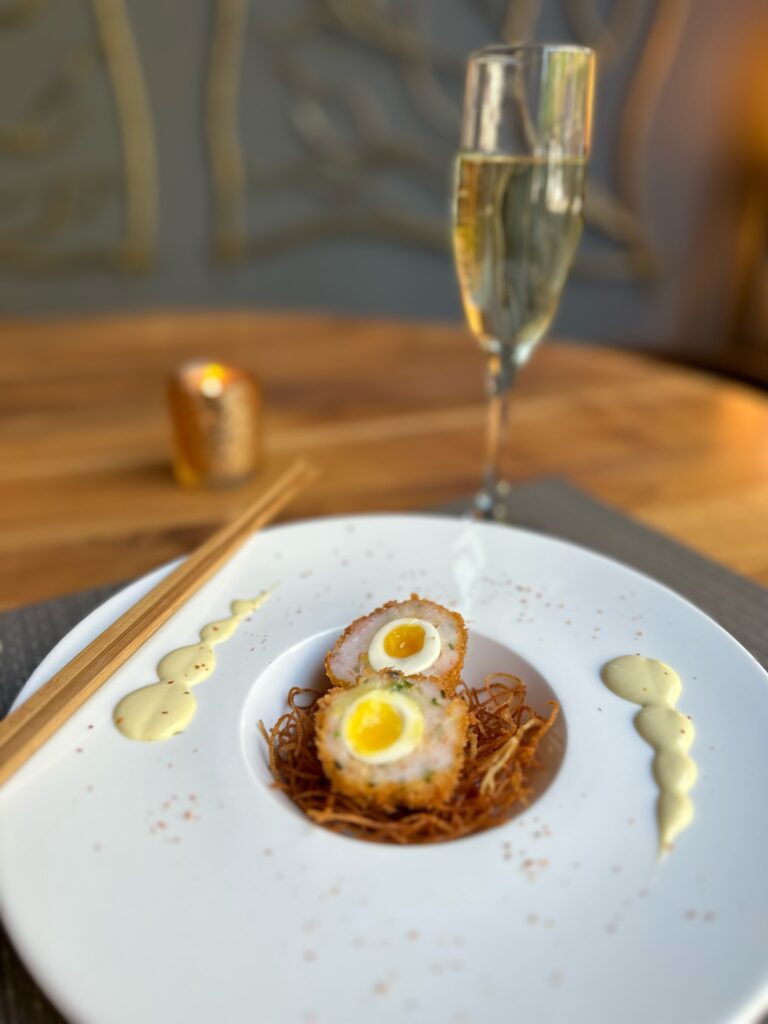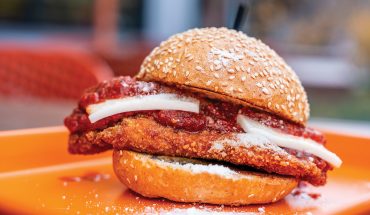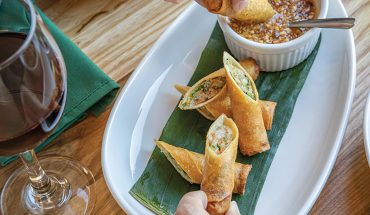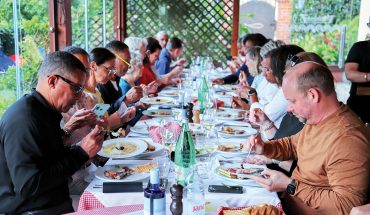The executive chef of this Asian and sushi restaurant in the Warehouse District shares what inspired his passion for cooking.
by Emma Deal
Raleigh’s O-ku, known for their traditional Japanese sushi and authentic Asian-inspired cuisine with a southern approach, has recently promoted Cuong Le to exec chef. Cuong Le focuses on creating a restaurant culture that values its team with an atmosphere that encourages growth and training from within. Cuong Le is a great example of this himself, as he began at O-ku in Raleigh in 2021, and has helped at different O-ku locations, before returning back to Raleigh’s O-ku in September. “To me the most important product that comes out of the kitchen is not the food, but the people who come out of the kitchen. The amazing food that we send out is a by-product of them,” said Cuong Le.
Cuong Le’s Vietnamese heritage gives him an appreciation for the art of cooking and for two years during Covid he taught himself different styles of cooking. His style today marries European and Asian cuisine to create interesting, delicious dishes. When speaking about his goals for O-ku, Cuong Le said “I really want to push the narrative here, I don’t want us to just be a sushi restaurant, I want us to be somewhere people can come and have a good experience, but also have the highest level of cuisine possible.” With a new Omakase menu coming out, we reached out to Chef Cuong Le to learn more about his background as a chef and his inspiration for the menu.
How did you become interested in cooking?
I didn’t realize it until I was older, but my family always did this thing where we’d have several households, my mom, my grandparents and her siblings, and always on the weekends we would gather at one household. Then we’d do a lot of cooking and we were just hanging out as a family. So there’d be like 12-13 of us, all the adults and kids all hanging out together, and food was such a vital part of that, that I didn’t even realize. Cause you know, when you get together you have food right? I only realized now that oh wow, this was a really vital part of growing up, there was always food around even though I wasn’t cooking it myself. I always saw my grandparents and my parents cooking. It was ingrained into me, I just didn’t really realize it.
So your family helped you realize food is really important?
I think that’s why food is so important to me because it’s not just about the actual food itself, but about bringing people together. I mean it’s kinda cliche, kinda cheesy right? But I really believe in it because people come here, to all the restaurants we work at, to have a good time, to spend quality time and have a good experience.
What do you love the most about your job?
I think for me, I’m really into Western cooking because of the history and tradition of it all. French cuisine has so much tradition that’s passed down, and the technique is what I really like. I’m a perfectionist, so that was really intriguing to me, learning the style. That’s what I like about being at O-ku. We take a lot of different cuisines and play on those traditions. It’s hard to find a balance of having a good time but also being a perfectionist.
Were you self-taught?
I went to culinary school for a semester, but I didn’t love it. I was good at school, but I didn’t like all the confines. Things were moving a little bit slowly for me. Covid was unfortunate right? A lot of people were hurt from it, but for me it was almost like a blessing in disguise. Usually in the cooking industry you work long hours and make a little bit of money, but you have no time to explore and do what you love. But then Covid hit and with that little bit of extra money they gave us from the government I had time. I never had time before, I was always working, but then I’m at home, I have money, I also have time and energy to do a lot of home research. I had the background already and I had a lot of ideas, I just didn’t have the time to do it.
I heard you have a new menu coming out, could you tell me a little about it and where you drew inspiration from?
Our Omakase menu, I think when most people think about it, they think about a traditional tasting, like multiple pieces of nigiri and sashimi. Usually it starts out with two or three small appetizers and then they bring out the heavier dishes. So they’re building up from the lightest flavors all the way to the heaviest most decadent flavors. Here we don’t do that, I still try to orchestrate a symphony where it crescendos toward the end, but it’s more comparative to a western tasting menu. So they’re more complete, small plates rather than just one piece of nigiri.
One dish that we’re having right now is my play on an English Scotch egg. A Scotch egg is a chicken egg that’s soft boiled, wrapped in sausage meat, rolled in egg wash and bread crumbs and then fried. It’s usually eaten cold at picnics or pubs, it’s really a pub food. I did a riff on it with a soft-boiled quail egg and instead of sausage meat, minced mushroom, so it has a very bouncy flavor.
Are there any dishes you like to cook when you aren’t at the restaurant?
In O-ku we do more refined dishes, especially sushi and sashimi which are beautifully plated, but for me, I love to eat soul food. If you have a dish with starch, protein and some kind of gravy, I’m all for it, whether it’s biscuits and gravy or gumbo. That’s my favorite food, the kind I love to cook when I go to home parties and things like that. It fulfills your soul.
Is there anything else you would like people to know about you or O-ku?
Things have changed so much on the cuisine side since we first opened a few years ago. If you haven’t visited us in a while, I would like to formally invite you back!
This article was originally published in April, 2023 on waltermagazine.com

